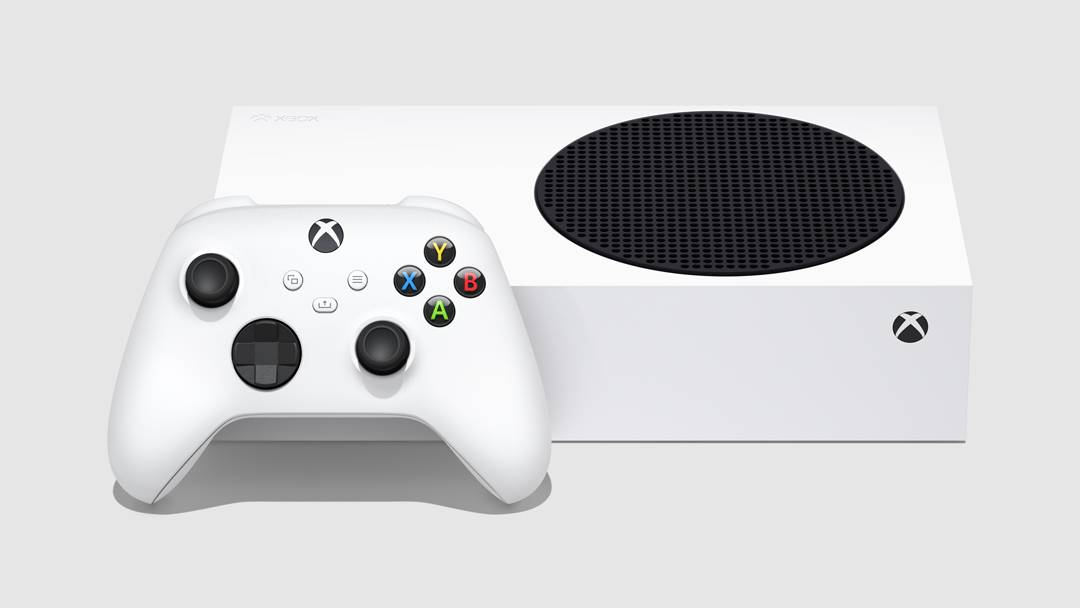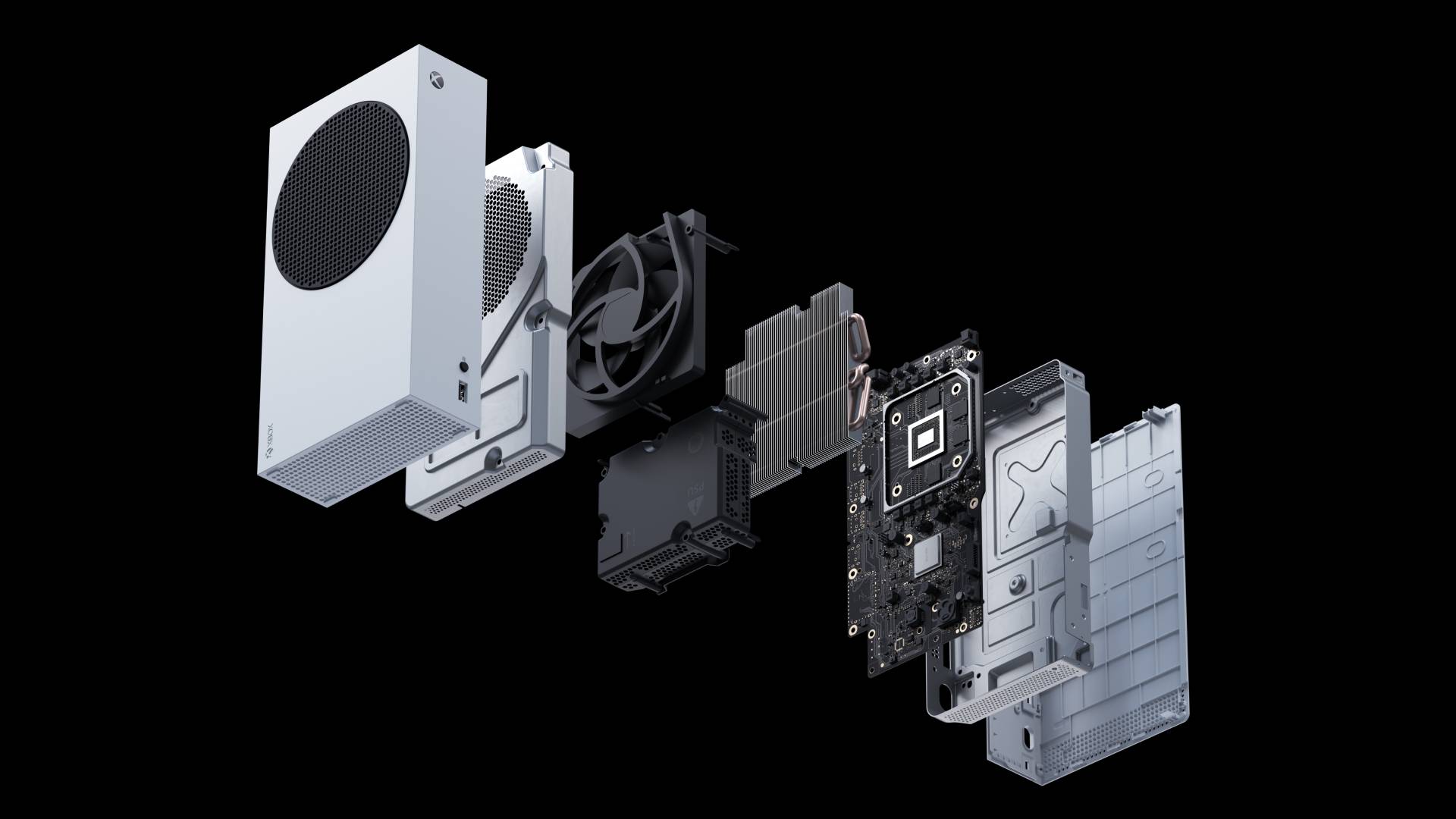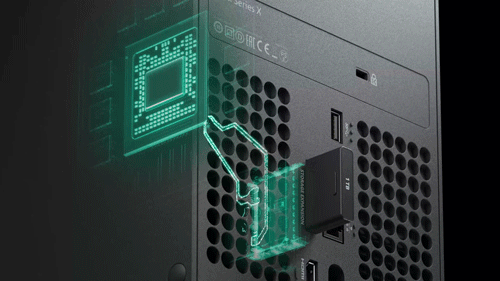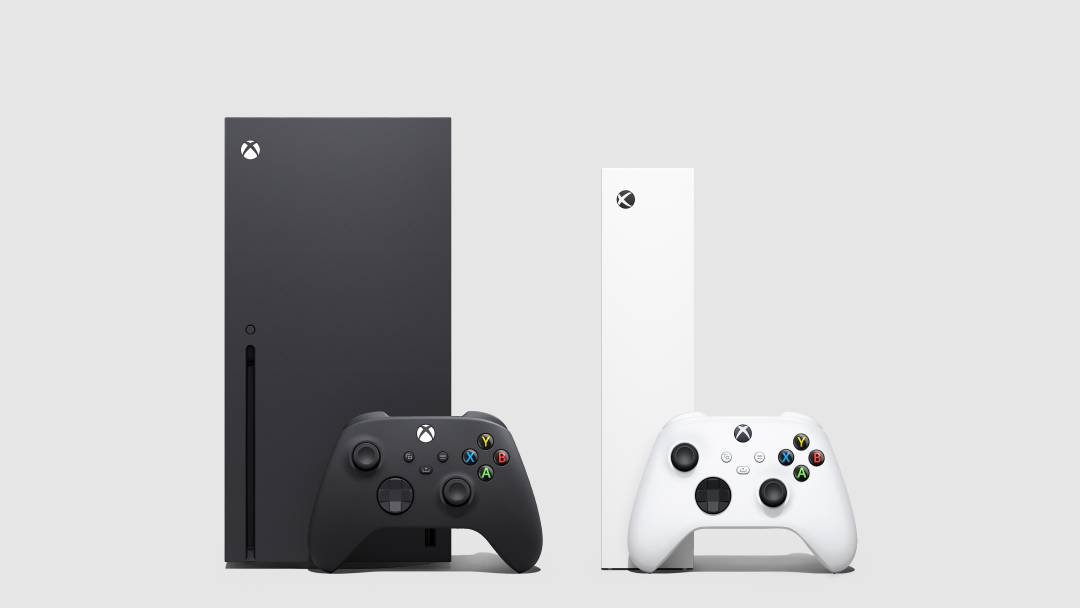Why the Xbox Series S storage size isn’t as bad as it seems
Opinion: It might go further than you think

The Xbox Series S storage size has come under fire, with many stating that the more affordable console’s 512GB NVMe SSD is simply too small. And while I do wish Microsoft could have added an extra few gigabytes into its little white box, it’s honestly not that bad.
Even though Microsoft was forced to reveal its hand earlier than it would have liked, the reception to the Xbox Series S has been decidedly positive since its reveal. The “smallest Xbox ever” promises to deliver all the next-gen features gamers will enjoy on the Xbox Series X, such as ray tracing, super-fast load times and all for a much, much lower price. At only $299 / £249 / AU$499, it’s one of the cheapest consoles in quite some time.
Cuts have been made to achieve this attractive price point, however. The console will target a 1440p resolution instead of 4K, and is significantly less powerful than its boxy big brother. It’s also digital-only, meaning there’s no disc drive on this model.
- Xbox Series X vs Xbox Series: which Xbox is right for you?
- Opinion: Microsoft really doesn't care if you buy an Xbox Series X
- Xbox Series X vs Xbox One X: should you upgrade?
Storage wars

The main point of contention with Microsoft’s entry-level device, then, seems to revolve around the size of the SSD. In fairness, it’s hardly a surprise. Most of the best Xbox One games tend to require at least 40GB or more of hard drive space these days, while some are determined to take up every gig available – I’m looking at you Call of Duty: Modern Warfare. But if we delve a little deeper, it might not be as bad as it first seems.
With the move to 4K gaming, file sizes have increased exponentially. Xbox One X patches are noticeably bigger than those on Xbox One S, simply because there’s more data that needs to be downloaded for things such as 4K textures. It’s safe to assume, then, that games for Xbox Series S, which is targeting 1440p, won’t utilize 4K textures and should be considerably smaller.
The Xbox Series S will also let owners expand the console’s storage in a couple of key ways. Microsoft has partnered with Seagate to create expansion cards that slot into the back of the console and match the capabilities of its internal SSD. These 1TB expansion cards will offer a significant boost in storage for the Xbox Series S model, although price will determine how viable they’ll be. It’s likely that bigger variants will arrive later down the line, too, for those who desire even more space.
Plug in, baby

"When you decide you’d like to jump into a certain game, simply transfer it back onto the main drive and you’re good to go."
But what about all the Xbox One, Xbox 360 and OG Xbox games you already own? Well, if you have an external hard drive, these games can be stored comfortably away from the console’s main SSD. With 2TB external hard drives going for cheap these days, it doesn’t cost much to hold hundreds of Xbox One games without sacrificing space on the super-fast SSD.
Sign up for breaking news, reviews, opinion, top tech deals, and more.
You can also store games that are specifically designed to take advantage of the Xbox Series S or Xbox Series X’s SSD on an external hard drive. When you decide you’d like to jump into a certain game, simply transfer it back onto the main drive and you’re good to go.
Thankfully, it’s becoming clear that most developers and console manufacturers are acutely aware that file sizes have been ballooning out of control. A number of games have recently been shrunk down as devs become better at compressing file sizes or trimming the fat from certain bits of code. Warframe is going to knock 15GB off its install size for example, and Sea of Thieves also managed to tighten its digital footprint recently.
Get smart

Initiatives such as ‘intelligent delivery’ will likely become more common this generation, too. This is when certain parts of the game can be downloaded or ignored, such as a multiplayer component or various language packs that will never get used. By only downloading what you need, the file sizes of games will invariably shrink.
Xbox Series S owners will also get access to almost all of the console's hard drive, too. Unlike most 500GB models, which was the standard for most of this generation, the extra 12GB of storage that the Xbox Series S includes will act as a nice buffer to stop the system’s OS taking a large chunk of space.
Depending on the success of the Xbox Series S, Microsoft will inevitably produce a new iteration with a larger hard drive. The price will increase, though, which I think diminishes the appeal of the super affordable system the Redmond-based company has designed. Either way, unlimited storage is a rarity and will always cost more.
With intelligent delivery, the addition of a cheap or existing external drive and the ability to forgo 4K resolution textures, the Xbox Series S should have enough space for the majority of users. Let's just be thankful it's more than the 32GB the Nintendo Switch comes with...

Adam was formerly TRG's Hardware Editor. A law graduate with an exceptional track record in content creation and online engagement, Adam has penned scintillating copy for various technology sites and also established his very own award-nominated video games website. He’s previously worked at Nintendo of Europe as a Content Marketing Editor and once played Halo 5: Guardians for over 51 hours for charity. He is now an editor at The Shortcut.